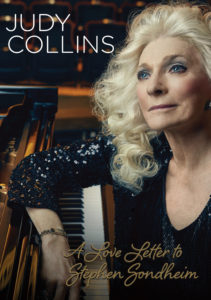The Wall Street Journal named Uncommon People: The Rise and Fall of the Rock Stars (Henry Holt, $30) one of the best music books of 2017 for a good reason. The book is an elegy for the social concept of the “rock star”. Recent times have seen the death of David Bowie, Prince, Tom Petty and Chuck Berry; with no sign that a new generation of outsized “rock stars” is coming and radical changes still transforming the music industry, it’s time to declare the end of the “rock star” as a social force. Acclaimed music journalist David Hepworth travels through the pre-Internet age of swagger, sexual charisma, self-belief and self-reliance through 40 portraits of musicians from 1955-1995.
Never Look at the Empty Seats (Thomas Nelson, $24.99) We’ll let Charlie Daniels’ friend Dolly Parton review his autobiography for you: “Charlie is so up-front and friendly, we all assume we know everything there is to know about him. Not so. There is so much about Charlie’s life in this book that it would and could make a great movie, or even better, a long-running series . . . very informative and interesting. We all love Charlie, me more than most. Enjoy the book. I did.”
There is so much about Charlie’s life in this book that it would and could make a great movie, or even better, a long-running series . . . very informative and interesting. We all love Charlie, me more than most. Enjoy the book. I did.”
Barthes: A Biography (Polity, $39.95) is based on unpublished material never before examined, and sheds new light on his intellectual positions, his political commitments and his ideas, beliefs and desires.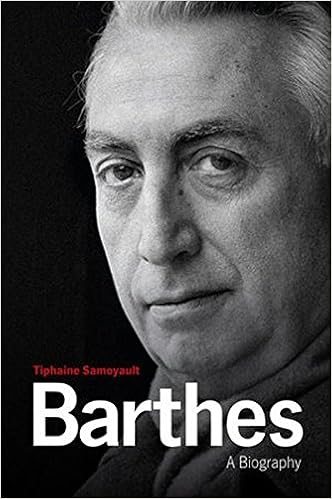 It details the many themes he discussed, the authors he defended, the myths he castigated, the polemics that made him famous and his acute ear for the languages of his day. This biography enables the reader to enter into Barthes’s life and grasp the shape of his existence, and thus understand the kind of writer he became and how he turned literature into life itself.
It details the many themes he discussed, the authors he defended, the myths he castigated, the polemics that made him famous and his acute ear for the languages of his day. This biography enables the reader to enter into Barthes’s life and grasp the shape of his existence, and thus understand the kind of writer he became and how he turned literature into life itself.
For much of the 20th century, boxing was one of America’s most popular sports, and the heavyweight champions were household names. In The Boxing Kings: When American Heavyweights Ruled the Ring (Rowman & Littlefield, $36), Paul Beston profiles these larger-than-life men who held a central place in American culture.  There’s John L. Sullivan, who made the heavyweight championship a commercial property; Jack Johnson, who became the first black man to claim the title; Jack Dempsey, a sporting symbol of the Roaring Twenties; Joe Louis, whose contributions to racial tolerance and social progress transcended even his greatness in the ring; Rocky Marciano, who became an embodiment of the American Dream; Muhammad Ali, who took on the U.S. government and revolutionized professional sports with his showmanship; and Mike Tyson, a hard-punching dynamo who typified the modern celebrity. A knock out!
There’s John L. Sullivan, who made the heavyweight championship a commercial property; Jack Johnson, who became the first black man to claim the title; Jack Dempsey, a sporting symbol of the Roaring Twenties; Joe Louis, whose contributions to racial tolerance and social progress transcended even his greatness in the ring; Rocky Marciano, who became an embodiment of the American Dream; Muhammad Ali, who took on the U.S. government and revolutionized professional sports with his showmanship; and Mike Tyson, a hard-punching dynamo who typified the modern celebrity. A knock out!  Another tome to make book ends: Mad Dog: The Maurice Vachon Story (ECW, $19,95), that explores Vachon’s career and personal struggles with painstakingly detailed historical research and through both Maurice’s own recollections and those of the people who knew him best.
Another tome to make book ends: Mad Dog: The Maurice Vachon Story (ECW, $19,95), that explores Vachon’s career and personal struggles with painstakingly detailed historical research and through both Maurice’s own recollections and those of the people who knew him best.
Cleopatra is one of the most famous women in history—and thanks to Shakespeare, one of the most intriguing personalities in literature. She was lover of Marc Antony, defender of Egypt, and, perhaps most enduringly, a champion of life. Award-winning writer and beloved professor Harold Bloom writes about Cleopatra with wisdom, joy, exuberance and compassion.  He also explores his own personal relationship to the character: Just as we encounter one Anna Karenina or Jay Gatsby when we are in high school and college and another when we are adults, Bloom explains his shifting understanding of Cleopatra over the course of his own lifetime. The book becomes an extraordinarily moving argument for literature as a path to and a measure of our own humanity.
He also explores his own personal relationship to the character: Just as we encounter one Anna Karenina or Jay Gatsby when we are in high school and college and another when we are adults, Bloom explains his shifting understanding of Cleopatra over the course of his own lifetime. The book becomes an extraordinarily moving argument for literature as a path to and a measure of our own humanity.
Before Washington, before Jefferson, before Franklin or John Adams, there was Richard Henry Lee, the First Founding Father. He was first to call for independence, first to cal for union, and first to call for a bill of rights to protect Americans against government tyranny. A towering figure in America’s Revolutionary War, Lee was as much the “father of our country” as George Washington, for it was Lee who secured the political and diplomatic victories that ensured Washington’s military victories.  A stirring, action-packed biography, First Founding Father: Richard Henry Lee and the Call to Independence (Da Capo Press, $28) First Founding Father will startle most Americans with the revelation that many historians have ignored for more than two centuries: Richard Henry Lee, not Thomas Jefferson, was the author of America’s original Declaration of Independence.
A stirring, action-packed biography, First Founding Father: Richard Henry Lee and the Call to Independence (Da Capo Press, $28) First Founding Father will startle most Americans with the revelation that many historians have ignored for more than two centuries: Richard Henry Lee, not Thomas Jefferson, was the author of America’s original Declaration of Independence.
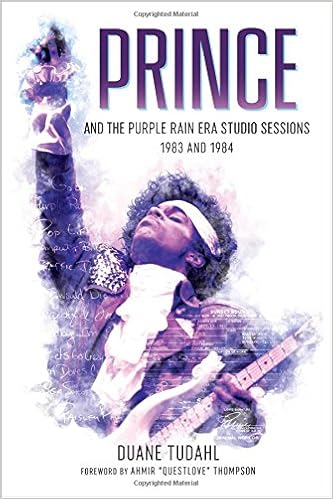 engineers who knew Prince best, including members of the Revolution and the Time, Tudahl weaves an intimate saga of an eccentric genius and the people and events who helped shape the groundbreaking music he created. This definitive chronicle of Prince’s creative brilliance during 1983 and 1984 provides a new experience of the Purple Rain album as an integral part of Prince’s life and the lives of those closest to him.
engineers who knew Prince best, including members of the Revolution and the Time, Tudahl weaves an intimate saga of an eccentric genius and the people and events who helped shape the groundbreaking music he created. This definitive chronicle of Prince’s creative brilliance during 1983 and 1984 provides a new experience of the Purple Rain album as an integral part of Prince’s life and the lives of those closest to him.It’s easy to call Stan Lee: The Man Behind Marvel (Rowman & Littlefield, $22.95) a marvel. Bob Batchelor offers an eye-opening look at this iconic visionary, a man who created (with talented artists) many of history’s most legendary characters. He explores how Lee capitalized on natural talent and hard work to become the editor of Marvel Comics as a teenager. After toiling in the industry for decades, Lee threw caution to the wind and went for broke, co-creating the Fantastic Four, Spider-Man, Hulk, Iron Man, the X-Men, the Avengers, and others in a creative flurry that revolutionized comic books for generations of readers. Marvel superheroes became a central part of pop culture, from collecting comics to innovative merchandising, from superhero action figures to the ever-present Spider-Man lunchbox.
After toiling in the industry for decades, Lee threw caution to the wind and went for broke, co-creating the Fantastic Four, Spider-Man, Hulk, Iron Man, the X-Men, the Avengers, and others in a creative flurry that revolutionized comic books for generations of readers. Marvel superheroes became a central part of pop culture, from collecting comics to innovative merchandising, from superhero action figures to the ever-present Spider-Man lunchbox.
How did Rich Little become an a world-famous, world-class impersonator?  He quips: “Perhaps my mother was conceived by a Xerox machine!” Little by Little: People I’ve Known and Been (7th Mind Publishing, $24.95) is a witty, fun read; not so much a detailed autobio, but (as Little says) “a humorous glimpse of he people I’ve impersonated and some of the funny stories that happened along the way.”
He quips: “Perhaps my mother was conceived by a Xerox machine!” Little by Little: People I’ve Known and Been (7th Mind Publishing, $24.95) is a witty, fun read; not so much a detailed autobio, but (as Little says) “a humorous glimpse of he people I’ve impersonated and some of the funny stories that happened along the way.”
Chris Matthews’ new book, Bobby Kennedy: A Raging Spirit (Simon & Schuster, $28.99) is a gripping, in-depth, behind-the-scenes portrait of one of the great figures of the American 20th century. Drawing on extensive research and interviews, Matthews pulls back the curtain on the public and private worlds of Robert Francis Kennedy.  He shines a light on all the important moments of his life, from his early years and his start in politics to his crucial role as attorney general in his brother’s administration and his tragic run for president. This book brings Bobby Kennedy to life like never before and is destined to become a political classic.
He shines a light on all the important moments of his life, from his early years and his start in politics to his crucial role as attorney general in his brother’s administration and his tragic run for president. This book brings Bobby Kennedy to life like never before and is destined to become a political classic.
Not many people know Wanda Jackson. They should. Her debut single, “You Can’t Have My Love,” reached the Top 10 while she was still a 16-year-old high school student. She hit the road after graduation, playing package shows with Carl Perkins, Johnny Cash, Jerry Lee Lewis and Elvis Presley, who gave Wanda his ring and asked her to be “his girl.” With Presley’s encouragement, the Oklahoma native began recording rock music, often releasing singles with country on one side and rock on the other during her decade-and-a-half tenure on Capitol Records.  With more than 40 albums to her credit, Wanda has proven to be an enduring and genre-defying legend of American music. She details her life and career in the wonderful In Every Night Is Saturday Night: A Country Girl’s Journey To The Rock & Roll Hall of Fame (BMG Books, $24.99). She’s still so loved Elvis Costello wrote the foreword.
With more than 40 albums to her credit, Wanda has proven to be an enduring and genre-defying legend of American music. She details her life and career in the wonderful In Every Night Is Saturday Night: A Country Girl’s Journey To The Rock & Roll Hall of Fame (BMG Books, $24.99). She’s still so loved Elvis Costello wrote the foreword.
In Reckless Daughter: A Portrait of Joni Mitchell (Sarah Crichton Books, $28), David Yaffe draws on dozens of unprecedented in-person interviews with Mitchell, her childhood friends and a cast of famous characters to reveal the backstory behind the famous songs. ![Reckless Daughter: A Portrait of Joni Mitchell by [Yaffe, David]](https://images-na.ssl-images-amazon.com/images/I/51soJq9sMAL.jpg) From Mitchell’s youth in Canada, her bout with polio at age nine and her early marriage and the child she gave up for adoption, through the love affairs that inspired hits, and up to the present, the bio shows us why Mitchell has so enthralled her listeners, her lovers and her friends. It’s the story of an artist and an era that have left an indelible mark on American music.
From Mitchell’s youth in Canada, her bout with polio at age nine and her early marriage and the child she gave up for adoption, through the love affairs that inspired hits, and up to the present, the bio shows us why Mitchell has so enthralled her listeners, her lovers and her friends. It’s the story of an artist and an era that have left an indelible mark on American music.
Hal Prince is King of Broadway . . . and then some. In his pithy and wildly entertaining Sense of Occasion (Applause, $29.99), the most honored director/producer in the history of the American theater looks back over his 70 (and counting!) year career. 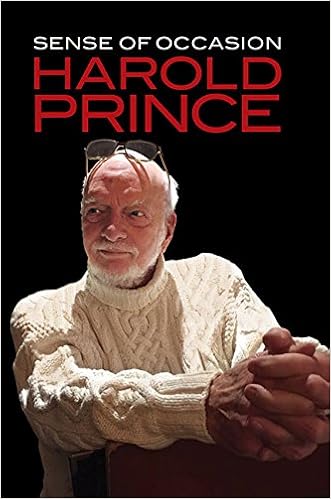 The book gives an insider’s recollection of the making of such landmark musicals as West Side Story, Fiddler on the Roof, Cabaret, Company, Follies, Sweeney Todd, Evita and The Phantom of the Opera, with Prince’s perceptive comments about his mentor George Abbott and his many celebrated collaborators. He also fairly reflects on the shows that didn’t work, most memorably and painfully Merrily We Roll Along. This thoughtful, complete account of one of the most legendary and long-lived careers in theater history, written by the man who lived it, is an essential work of personal and professional recollection.
The book gives an insider’s recollection of the making of such landmark musicals as West Side Story, Fiddler on the Roof, Cabaret, Company, Follies, Sweeney Todd, Evita and The Phantom of the Opera, with Prince’s perceptive comments about his mentor George Abbott and his many celebrated collaborators. He also fairly reflects on the shows that didn’t work, most memorably and painfully Merrily We Roll Along. This thoughtful, complete account of one of the most legendary and long-lived careers in theater history, written by the man who lived it, is an essential work of personal and professional recollection.
In The Grouchy Historian: An Old-Time Lefty Defends Our Constitution Against Right-Wing Hypocrites and Nutjobs (Simon & Schuster $26), Ed Asner leads the charge for liberals to reclaim the Constitution from the right-wingers who use it as their justification for doing whatever terrible thing they want to do, which is usually to comfort the comfortable and afflict the afflicted. 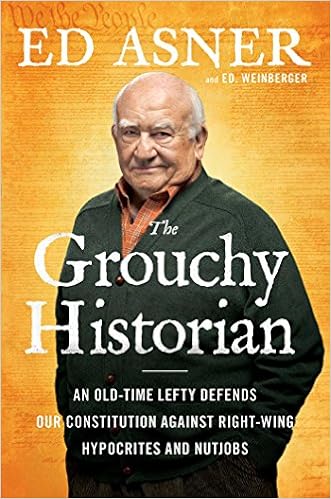 It’s about time someone gave them hell and explained that progressives can read, too. Go get ’em Mr. Grant!
It’s about time someone gave them hell and explained that progressives can read, too. Go get ’em Mr. Grant!
The answer is blowin’ in the wind. Or at least in this quartet of books that celebrate and commemorate Bob Dylan. Why Bob Dylan Matters (Dey Street Books, $24.99), Harvard Professor Richard F. Thomas, a world expert on Classical poetry, was initially ridiculed by his colleagues for teaching a course on Bob Dylan alongside his traditional seminars on Homer Virgil, and Ovid. Dylan’s  Nobel Prize brought him vindication, and he immediately found himself thrust into the spotlight as a leading academic voice in all matters Dylanological. Today, through his wildly popular Dylan seminar—affectionately dubbed “Dylan 101″—Thomas is introducing a new generation of fans and scholars to the revered bard’s work. This witty, personal volume is a distillation of Thomas’s famous course, and makes a compelling case for moving Dylan out of the Rock & Roll Hall of Fame and into the pantheon of Classical poets. You’ll never think about Bob Dylan in the same way again. On October 13, 2016, he the Nobel Prize in Literature, recognizing his countless contributions to music and letters over the last 50 years.
Nobel Prize brought him vindication, and he immediately found himself thrust into the spotlight as a leading academic voice in all matters Dylanological. Today, through his wildly popular Dylan seminar—affectionately dubbed “Dylan 101″—Thomas is introducing a new generation of fans and scholars to the revered bard’s work. This witty, personal volume is a distillation of Thomas’s famous course, and makes a compelling case for moving Dylan out of the Rock & Roll Hall of Fame and into the pantheon of Classical poets. You’ll never think about Bob Dylan in the same way again. On October 13, 2016, he the Nobel Prize in Literature, recognizing his countless contributions to music and letters over the last 50 years.  His acceptance speech is contained in The Nobel Lecture (Simon & Schuster , $16.99), in which Dylan reflects on his life and experience with literature, providing both a rare artistic statement and an intimate look at a uniquely American icon. 100 Songs (Simon & Schuster, $17) is an intimate and carefully curated collection of his most important lyrics that spans from the beginning of his career through the present day.
His acceptance speech is contained in The Nobel Lecture (Simon & Schuster , $16.99), in which Dylan reflects on his life and experience with literature, providing both a rare artistic statement and an intimate look at a uniquely American icon. 100 Songs (Simon & Schuster, $17) is an intimate and carefully curated collection of his most important lyrics that spans from the beginning of his career through the present day. 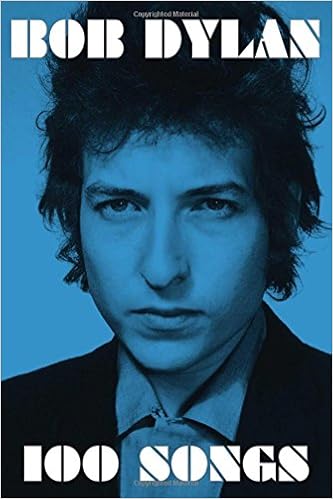 Perfect for students who may be new to Dylan’s work as well as longtime fans, this portable, abridged volume of these singular lyrics explores the depth, breadth and magnitude of one of the world’s most enduring bodies of work. Bob Dylan: The Essential Interviews (Simon & Schuster, $35) features more than two dozen of the most significant and revealing conversations with the singer, gathered in one definitive collection that spans his career from street poet to Nobel Laureate.
Perfect for students who may be new to Dylan’s work as well as longtime fans, this portable, abridged volume of these singular lyrics explores the depth, breadth and magnitude of one of the world’s most enduring bodies of work. Bob Dylan: The Essential Interviews (Simon & Schuster, $35) features more than two dozen of the most significant and revealing conversations with the singer, gathered in one definitive collection that spans his career from street poet to Nobel Laureate.
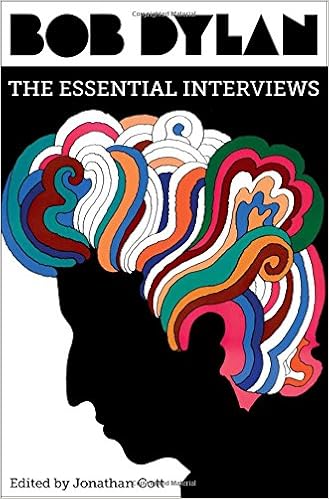
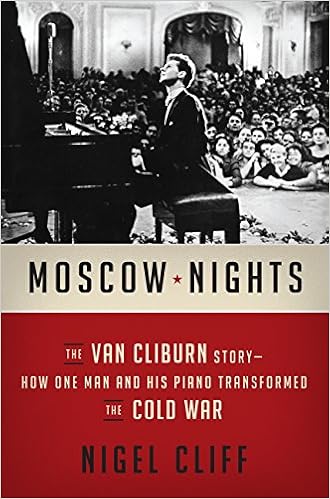 In contrast to the tensions sparked by the Bay of Pigs debacle and the Cuban Missile Crisis, Cliburn brought classical music to the masses. Elegantly combining the political and the personal, this narrative provides a fresh perspective on the Cold War and its implicit nuclear threat while telling the whole of Van Cliburn’s story for the first time.
In contrast to the tensions sparked by the Bay of Pigs debacle and the Cuban Missile Crisis, Cliburn brought classical music to the masses. Elegantly combining the political and the personal, this narrative provides a fresh perspective on the Cold War and its implicit nuclear threat while telling the whole of Van Cliburn’s story for the first time.Jenifer Lewis bares her soul in The Mother of Black Hollywood: A Memoir (Amistad , $25.99), a touching and poignant—and at times side-splittingly hilarious—memoir of a Midwestern girl with a dream, whose journey took her from poverty to the big screen, and along the way earned her many accolades.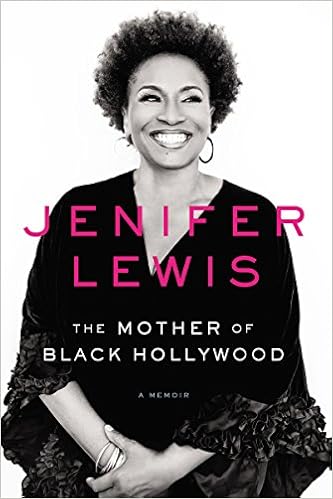 In the audaciously honest voice that her fans adore, Lewis describes her transition to Hollywood; when an undiagnosed mental illness stymies her career (culminating in a breakdown while filming The Temptations), her quest for wholeness becomes a harrowing and inspiring tale, including revelations of bipolar disorder and sex addiction.
In the audaciously honest voice that her fans adore, Lewis describes her transition to Hollywood; when an undiagnosed mental illness stymies her career (culminating in a breakdown while filming The Temptations), her quest for wholeness becomes a harrowing and inspiring tale, including revelations of bipolar disorder and sex addiction.
Hunter Davies, the only ever authorized biographer of the Fab Four, brings together three eminent Beatles experts—Spencer Leigh, Keith Badman and David Bedford to compile an invaluable and essential guide. Divided into four sections—People, Songs, Places and Broadcast & Cinema—The Beatles Book(Ebury Press , $59.95) covers every element of the band’s history and brings every  influence that shaped the incredible Beatles phenomenon vividly to life. Hunter and his team have also rated entries to show how important, influential or meaningful that characteristic was in the history of their lives and creations. Illustrated with material from Hunter’s remarkable private collection of personal artifacts and memorabilia, this compendium is an beautiful, insightful and entertaining treasure for any Beatles fan.
influence that shaped the incredible Beatles phenomenon vividly to life. Hunter and his team have also rated entries to show how important, influential or meaningful that characteristic was in the history of their lives and creations. Illustrated with material from Hunter’s remarkable private collection of personal artifacts and memorabilia, this compendium is an beautiful, insightful and entertaining treasure for any Beatles fan.
Steve McQueen remains the embodiment of cool some three decades after his death. How can that be? Whether on the silver screen, racing a Triumph motorcycle across a California desert, dueling with other racers at Le Mans, or simply hanging with his pals, McQueen exuded an effortless style that belied his rough and tumble past. It’s a trick that ensures he continues to appear in advertising and pop culture all the while embraced by cinema, racing, and motorcycle fans as one of their own.  He remains the ultimate guy’s guy. The Life Steve McQueen (Motorbooks, $30) explores and celebrates the memorable aspects of McQueen’s life that, taken as a whole, defined the man and cemented his reputation as a Hollywood rebel and risk taker. Peppered with period photos, illustrations, posters and more, the book surveys the movie roles, racing, personal style, art, and pop culture that all combined to crown the King of Cool and ensure his legacy.
He remains the ultimate guy’s guy. The Life Steve McQueen (Motorbooks, $30) explores and celebrates the memorable aspects of McQueen’s life that, taken as a whole, defined the man and cemented his reputation as a Hollywood rebel and risk taker. Peppered with period photos, illustrations, posters and more, the book surveys the movie roles, racing, personal style, art, and pop culture that all combined to crown the King of Cool and ensure his legacy.

